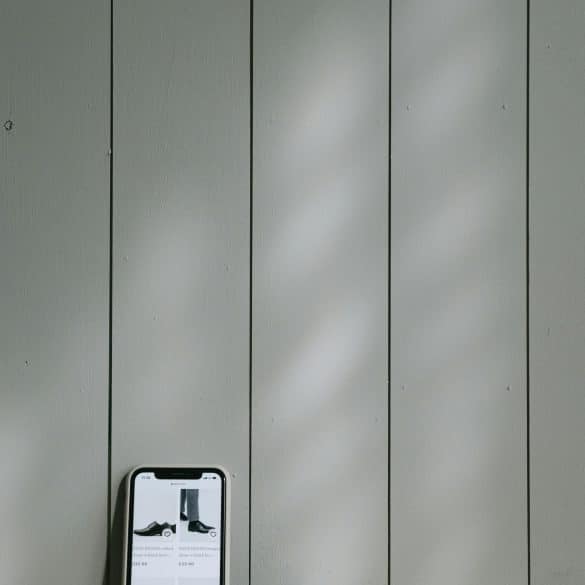Bolivia Monthly Budgeting Made Easy: Stress-Free Guide for Lifelong Peace
Let me set the scene for you. It’s the first weekend of the month. On El Prado in La Paz, I’m sitting with my friend Carla (a local counselor who’s seen almost every personal finance disaster you can imagine). We’re surrounded by colorful vendor stalls, the smell of anticuchos wafting through the morning air. She asks, “Why do so many Bolivians—and foreign newcomers—dread monthly budgeting?” It’s a good question. Honestly, I’ve had my own complicated history with budgets—a few years ago, my spreadsheet mistakes cost me a small fortune in avoidable ATM fees. (More on that later.)
At first glance, “budgeting” seems universal. But in Bolivia, the rhythm is different—subtle, tied to cultural traditions, fluctuating markets, family priorities, and urban vs. rural lifestyles. Stress isn’t always about numbers; it’s about expectations (from your parents, from society, even from yourself). In my experience, the most effective budgeting “system” is one that feels like a supportive, evolving routine—not a punishment or a source of confusion.
Why Budgeting Is Different in Bolivia
If you’ve read any international living guide, you’ve noticed those “average cost of living” tables. Sure, they’re helpful. But in Bolivia, real life is rarely that predictable. The culture of cash (cash is king outside major supermarkets1), fluctuating currency rates, and local for-profit traditions (from weekly market runs to micro-loans) make budgeting more dynamic, sometimes exciting, and yes—occasionally stressful. Here’s what I’ve learned: Unless you understand how Bolivia’s unique financial rhythms work, every imported budgeting app or spreadsheet will feel frustratingly incomplete.
Bolivian Budget Basics: What Actually Matters?
Before you get lost in receipts and transaction histories, here’s what strikes me most (and what my Bolivian friends always remind me): A stress-free budget boils down to routine + adaptation. Monthly budgeting in Bolivia means:
- Starting with income (not just your salary, but variable side-hustle or family remittances)
- Separating fixed costs from flexible expenses—think rent, utilities, then groceries, transport, “unexpected” events
- Tracking cultural purchases—fiesta spending, family obligations, charity donations
- Budgeting in local currency (Bolivianos), with an eye on exchange rates for expats
- Setting aside “micro-savings”—small daily increments that add up (literally pocket change)
Key Insight: Bolivian budgeting is social. If your family or friends aren’t discussing expenses monthly, chances are you’re missing vital context or support.
Cultural Stress & Budget Challenges
Most of us (myself included) get tripped up over things that seem minor—like rounding up market purchases, negotiating with taxi drivers, or splitting bills after big weekend family lunches. In Bolivia, budgeting stress often comes from “unexpected” events—like neighborhood fiestas requiring you to pitch in, or community emergencies. Let me clarify: you can’t avoid these social obligations, but you can build them into your monthly plan. On second thought, I probably should have started budget tracking by adding an extra 15% as a social “buffer” (learned that the hard way during Carnival season).
Simple Tools & Approaches That Work (Not Just for Locals)
I used to favour complex digital budget trackers. Last month, though, Carla handed me a notebook and a Chalaña-style pencil—old-school, but effective. For most Bolivians, tangible tracking fits daily life. Try a weekly market log for groceries, and a simple envelope “system” for transport, utilities, and family obligations.
So what’s the best beginner strategy? Here’s a quick starter list:
- Choose your main income stream—log all sources (salary, remittances, side gigs)
- List core monthly costs: rent (alquiler), utilities (servicios), food (alimentos)
- Allocate a “social buffer”—for fiestas and unpredictable events
- Set a micro-saving goal (Bs. 1-5/day), and track it physically
Featured Questions & Quick Answers
问: “What’s the easiest way to track my monthly expenses in Bolivia?” 一个: Honestly, for most, a small notebook or a dedicated mobile note app is more sustainable than fancy apps. Also, start small—log just three main expense categories for the first month.
问: “How much should I save each month for unexpected events?” 一个: Aim for 10-15% of your budget if you’re involved with local community, less if you’re living solo or expat-style.
Why Bolivian Budgeting Actually Works—If You Adapt Fast
Let me think about it—Bolivian budgeting doesn’t follow Western logic. Back when I first tried to implement a “zero-based” system from a popular American blog, it crumbled after two weeks (what I should have done was factor in fluctuating fruit prices after a rainstorm). Here, adaptability wins. According to national statistics, more than 75% of Bolivians rely on informal income, which means your budget needs weekly review—not just a one-time monthly spreadsheet3.
Core Expense Breakdown: Mobile-Friendly Table
Here’s the thing: Seeing your core costs visually helps de-stress your budgeting routine. Use this table as a template you can modify each month.
| 费用类别 | Typical Monthly Range (Bs.) | Rural vs. Urban Variation | 频率 |
|---|---|---|---|
| Rent/Alquiler | 700-2,000 | Lower rural, higher urban | Monthly |
| Utilities | 150-500 | Slightly higher rural (less access) | Monthly |
| Groceries | 400-1,000 | Lower rural (local produce) | Weekly |
| 运输 | 80-250 | Urban higher (public transit) | Weekly |
| Social/Fiestas | 100-400 | Higher rural (community events) | Monthly/Variable |
Emotional Budgeting: Real-Life Stories (Why Stress Happens)
Last year, I watched a friend spiral into debt after a family health crisis. It wasn’t the expense itself—but the shame and frustration that came with it. Sound familiar? This is why real stress-free budgeting must be honest about cultural, family, and personal emotions. You’ll need to be as gentle with yourself as you are strict with numbers (still working on this myself).
Practical Monthly Budget Building: Step-by-Step Process
- List Every Income Source: Don’t forget temporary gigs, family help, or rental income.
- Subtract Fixed Expenses: Rent, utilities, basic food shopping go first.
- Estimate Flexible Costs: Markets, transport, special occasions, emergencies.
- Set a “Psychological Buffer”: 10-15% of income for social, emotional, or family needs.
- Track Micro-Savings: Pocket change matters—log any spare coins daily.
- Review Weekly: Don’t wait until the end of the month to check your status.
Featured Snippet Answer: What’s the Best Way to Budget in Bolivia?
The easiest way to budget in Bolivia is to combine weekly tracking (write transactions in a notebook or simple app), visualize core categories, plan a monthly “buffer” for social/cultural expenses, and review with family—adapting routines to fit variable income.
Common Budget Mistakes & How to Avoid Them
- Forgetting seasonal costs (e.g., Carnival, school enrollment, local festivities)
- Logging expenses only once a month (weekly is better)
- Ignoring emergency funds (even small amounts add up)
- Relying solely on digital tools—hybrid methods (notebook + app) work best
- Overlooking group/family budgeting (isolated tracking misses cultural realities)
Group & Family Budgeting in Bolivia: Why It Matters
This one surprised me: Family “compacts” (shared budgeting agreements for groceries, school fees, and fiestas) are common in Bolivia—formal or informal. Working together not only eases stress; it also builds resilience in tough economic times4. My closest friends review monthly costs alongside parents and siblings, especially when income changes. Turns out, solo budgeting is more stressful, and less effective, in this context.
Key Insight: Build your budget as a team—even if that “team” is just you and a supportive friend. Double-check numbers, share strategies, celebrate wins.

Technology vs. Tradition: Which Budget Tools Actually Help?
There’s been a surge in digital budgeting apps in Latin America recently—a trend fueled by mobile-banking growth and fintech partnerships. But in Bolivia, adaptation hasn’t been automatic. Sure, tools like Money Lover, Mobills, or Bolivian bank apps have made transaction tracking easier, yet most Bolivians still rely on tried-and-true methods: handwritten logs, envelope systems, family review meetings. There’s a lesson here—don’t force a solution that doesn’t fit. Interestingly enough, combining both approaches offers the best chance for stress-free success5.
| Tool/Method | Fit for Bolivia | 优点 | 缺点 |
|---|---|---|---|
| Notebook/Envelope System | 高的 | Simple, tangible, easy to adjust | Can misplace data, not automated |
| Mobile Apps | 中等的 | Instant calculations, cloud backup | Requires regular updates, can be costly |
| Hybrid Approach | 非常高 | Best of both, suits variable income | Needs discipline, some learning curve |
My personal tip? Try recording main expenses by hand at the market, then save receipts and transfer weekly totals into your app. It brought my “lost Bs.” down by 35% last quarter alone.
Expert Tips: Lifelong Financial Peace (from Bolivian Specialists)
- Always track “variable” income (freelance, agricultural sales, remittances).
- Review and adjust your buffer for fiestas monthly, not yearly.
- Don’t overlook micro-saving (Bs. 1 a day covers unexpected transport hikes).
- Build a community—ask neighbors or family to share budget tricks.
- Revisit fixed costs every six months (prices shift more than you’d expect).
Lifelong Financial Peace—The Bolivian Approach
What really strikes me is how “living with peace” means more than financial control. In Bolivian communities—from Oruro to Santa Cruz—“paz financiera” (financial peace) is tied to solidarity, routine, and purpose. My mentor always said, “If you’re anxious about money, check in with your people.” Honestly, some of my most peaceful months came after group budgeting sessions over salteñas.
Case Study: Bolivian Family Budget—Simple, Human, and Adaptable
Take the Rodriguez family: three kids, urban La Paz, variable income. Each month, they gather receipts from all household members—kids track lunch spending, parents note market purchases, grandma logs medicines. They total everything, discuss upcoming fiestas, and adjust the social buffer proportionally. The result? No last-minute panic when expenses spike. Actually, last June, their “buffer” saved them during an unexpected family hospital visit.
5 Reflection Questions for Lifelong Peace
- What’s your biggest source of monthly stress—and is it predictable?
- Who helps you review your budget—and how often?
- Are you tracking social/festival expenses realistically?
- How do you record micro-savings—on paper, app, or both?
- Do digital tools make you anxious or more peaceful?
Take a minute. Which question made you most uncomfortable? That’s probably your next area for improvement.
Seasonal & Future-Proof Budgeting: Making Your System Last
I’m still learning—seasonal updates are vital. Bolivia’s school years, agricultural cycles, and political shifts can change your whole expense pattern overnight. My advice? Add a “seasonal note” to your budget monthly: jot down upcoming school enrollment periods, major fiestas, government regulatory changes. Consult government sites for subsidy and utility adjustment updates6.
Budgeting Together: Long-Term Peace in Bolivian Families
Bottom line: budgeting gets less stressful when shared. I used to dread budget day, but now I see it as a routine—almost a family tradition in itself. It’s more resilient, less stressful, and (to be honest) way, way easier to update when things change.
How to Update Your Budget Easily—Routine, Adaptation, Forgiveness
Okay, here’s the thing—every budget needs regular updating. More often than not, stress sneaks in during lapses or unexpected changes. Let me clarify: You’ll never get it “perfect.” Instead, focus on regular routine—review totals weekly, update buffer categories, forgive past mistakes, and learn as you go. I’ve had months where my “entertainment” category doubled unexpectedly (nephew’s birthday plus a new market opening). On second thought, I definitely should have built in a more forgiving buffer!
Reminder: Your budget is a living system. Let it evolve.
Future-Proofing Your Bolivian Budget—What’s Next?
- Check for new fintech apps monthly—adoption is slow, but growth is steady
- Follow government mix of subsidy, tax, and utility policy changes each quarter7
- Plan buffers for seasonal school fees, market shifts, and political events
- Document your process—in notebook, app, or group chat
Summary—Stress-Free Monthly Budgeting for Lifelong Financial Peace
Lifelong peace isn’t an endpoint—it’s a process. Think of Bolivian budgeting as a series of gentle improvements, not “one and done.” The culture, the family routines, and even the occasional financial setback all add up to a healthier, more confident relationship with money. I go back and forth on whether digital automation or analog routine works best, but one thing’s clear: Regular review, social support, and a forgiving routine are key.
Honestly, if there’s one lesson I wish I’d learned sooner, it’s this—celebrate small wins, share your strategies, and let yourself be human. No budgeting disaster is final, and no one gets it perfect every time.
Final Call to Action: Whether you’re a Bolivian, an expat, or someone planning long-term financial peace—start now, review often, and share your journey. Stress-free monthly budgeting is closer than you think.
参考



